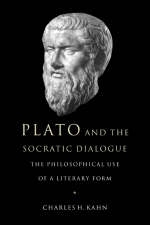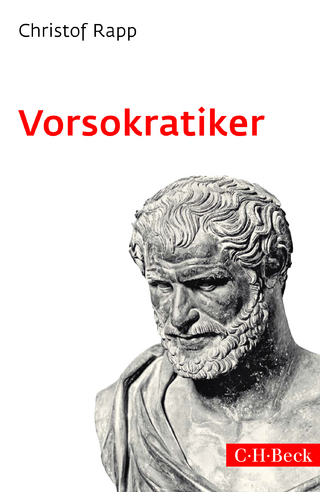
Plato and the Socratic Dialogue
The Philosophical Use of a Literary Form
Seiten
1998
Cambridge University Press (Verlag)
978-0-521-64830-1 (ISBN)
Cambridge University Press (Verlag)
978-0-521-64830-1 (ISBN)
This book offers a new interpretation of Plato's early and middle dialogues as the expression of a unified philosophical vision. The magnificent literary achievement of the dialogues can be fully appreciated only from the viewpoint of a unitarian reading of the philosophical content.
This book proposes a new paradigm for the interpretation of Plato's early and middle dialogues. Rejecting the usual assumption of a distinct 'Socratic' period in the development of Plato's thought, this view regards the earlier works as deliberate preparation for the exposition of Plato's mature philosophy. Differences between the dialogues do not represent different stages in Plato's own thinking but rather different aspects and moments in the presentation of a new and unfamiliar view of reality. Once the fictional character of the Socratic genre is recognised, there is no reason to regard Plato's early dialogues as representing the philosophy of the historical Socrates. The result is a unified interpretation of all of the dialogues down to the Republic and the Phaedrus.
This book proposes a new paradigm for the interpretation of Plato's early and middle dialogues. Rejecting the usual assumption of a distinct 'Socratic' period in the development of Plato's thought, this view regards the earlier works as deliberate preparation for the exposition of Plato's mature philosophy. Differences between the dialogues do not represent different stages in Plato's own thinking but rather different aspects and moments in the presentation of a new and unfamiliar view of reality. Once the fictional character of the Socratic genre is recognised, there is no reason to regard Plato's early dialogues as representing the philosophy of the historical Socrates. The result is a unified interpretation of all of the dialogues down to the Republic and the Phaedrus.
1. Sokratikoi logoi: the literary and intellectual background of Plato's work; 2. The interpretation of Plato; 3. Socrates; 4. Plato as a minor Socratic: Ion and Hippias Minor; 5. Gorgias: Plato's manifesto for philosophy; 6. The priority of definition: from Laches to Meno; 7. Charmides and the search for beneficial knowledge; 8. Protagoras: virtue as knowledge; 9. The object of love; 10. The emergence of dialectic; 11. The presentation of the Forms; 12. Phaedrus and the limits of writing; Appendix; Bibliography.
| Erscheint lt. Verlag | 4.6.1998 |
|---|---|
| Zusatzinfo | Worked examples or Exercises |
| Verlagsort | Cambridge |
| Sprache | englisch |
| Maße | 152 x 228 mm |
| Gewicht | 610 g |
| Themenwelt | Geisteswissenschaften ► Philosophie ► Philosophie Altertum / Antike |
| ISBN-10 | 0-521-64830-0 / 0521648300 |
| ISBN-13 | 978-0-521-64830-1 / 9780521648301 |
| Zustand | Neuware |
| Informationen gemäß Produktsicherheitsverordnung (GPSR) | |
| Haben Sie eine Frage zum Produkt? |
Mehr entdecken
aus dem Bereich
aus dem Bereich
mit Sokrates, Seneca, Platon & Co. im Gespräch
Buch | Hardcover (2023)
FinanzBuch Verlag
18,00 €


